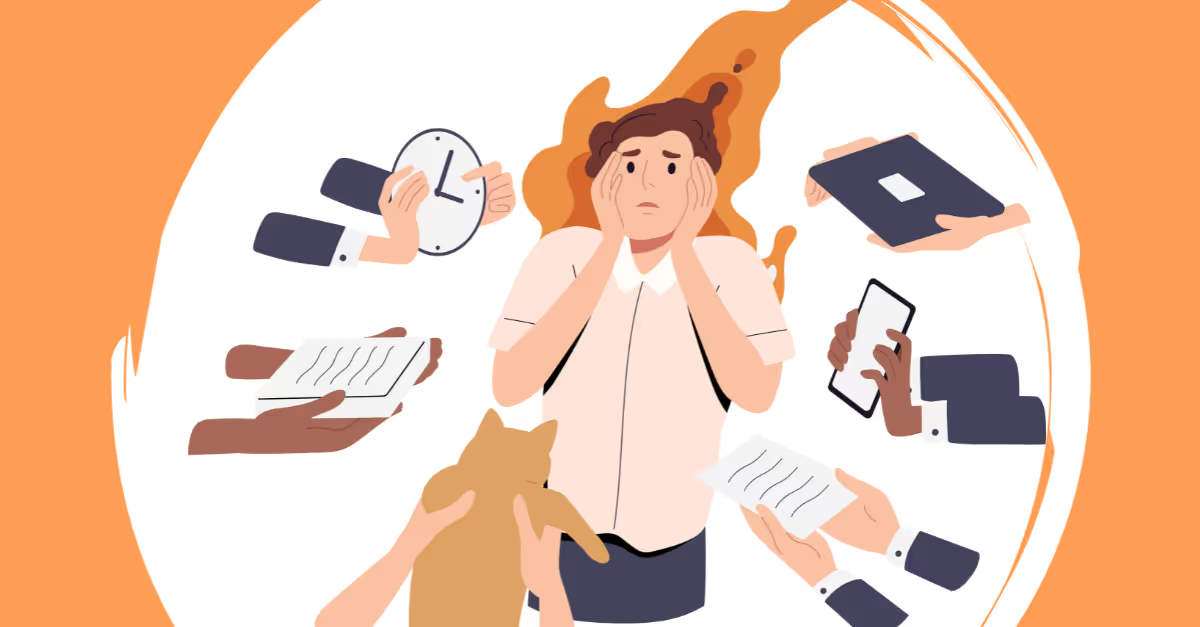As a sports performance physical therapist in Wilmington, NC, I've seen firsthand how stress can wreak havoc on both the body and mind. In our fast-paced world, it seems like stress is an unavoidable part of life. But does it have to be?
Stress is a natural response designed to keep us safe in times of danger. Our ancestors relied on this fight-or-flight response to escape predators and other threats. However, in today's modern world, our stressors are often more psychological than physical. From work deadlines to family obligations, the pressures of daily life can take a toll on our well-being.
Stressors contribute to our allostatic load, in layman's terms, this is your stress bucket. Imagine every stressor throughout your life is a cup of water, or maybe cups depending on how intense the stressor is. If we are continuously adding to the bucket and never taking anything out, eventually it will overflow. Stressors can include the obvious, such as work deadlines, traffic, relationship or money issues, but can also include blood sugar dysregulation, nutrient deficiencies, lack of movement, poor sleep habits or quality. The goal is to remove stressors from your “buckets” to help drain those buckets more quickly and to improve resilience.
So, what can we do to manage stress in our own lives? As a sports performance physical therapist, I often recommend a multi-faceted approach that addresses both the physical and psychological aspects of stress. Here are a few strategies to consider:
- Exercise regularly: Physical activity is a powerful stress reliever, releasing endorphins that improve mood and reduce tension. Whether it's going for a run, hitting the gym, or practicing yoga, find an activity that you enjoy and make it a regular part of your routine.
- Move frequently and regularly: there is a key difference between exercise and movement. Exercise is a type of movement, it is a formalized, structured way to move. Although exercise has many of the good qualities of movement, it is often high intensity and occurs in short and infrequent bursts. Walking, bending, stretching, digging, vacuuming, cooking, sweeping, playing with children, and dancing are all wonderful forms of movement.
- Practice relaxation techniques: Incorporate relaxation techniques such as deep breathing, meditation, or progressive muscle relaxation into your daily life. These practices can help calm the mind and body, reducing stress levels over time.
One example of a breathing technique that is helpful to tap into your parasympathetic or rest and digest nervous system is the 4-7-8 technique. - Spend time in nature: this is easy when we have Wrightsville beach just a few minutes away from our office! If the beach isn’t for you, just spending time outside is equally beneficial.
- Prioritize sleep: Adequate sleep is essential for managing stress and maintaining overall health. Aim for 7-9 hours of quality sleep each night, and establish a relaxing bedtime routine to signal to your body that it's time to unwind. Pro tip: wear blue light glasses a few hours before going to bed if you aren’t able to avoid screen time. Blue light exposure will depress melatonin production, making it more difficult to fall asleep.
- Set boundaries: Learn to say no to excessive commitments and prioritize self-care. Setting boundaries can help prevent burnout and ensure that you have time for the activities and relationships that bring you joy.
- Remember, stress is a natural part of life, but it doesn't have to control you. By implementing these stress management strategies, you can take control of your well-being and live a happier, healthier life. So, let's bid adieu to stress and embrace a more balanced approach to living!
In good health,
Dr. Eliza Cohen
Performance Physical Therapist + Wellness Consultant
Wilmington, NC
IG: @conquermovementpt @doctor_cohen14

